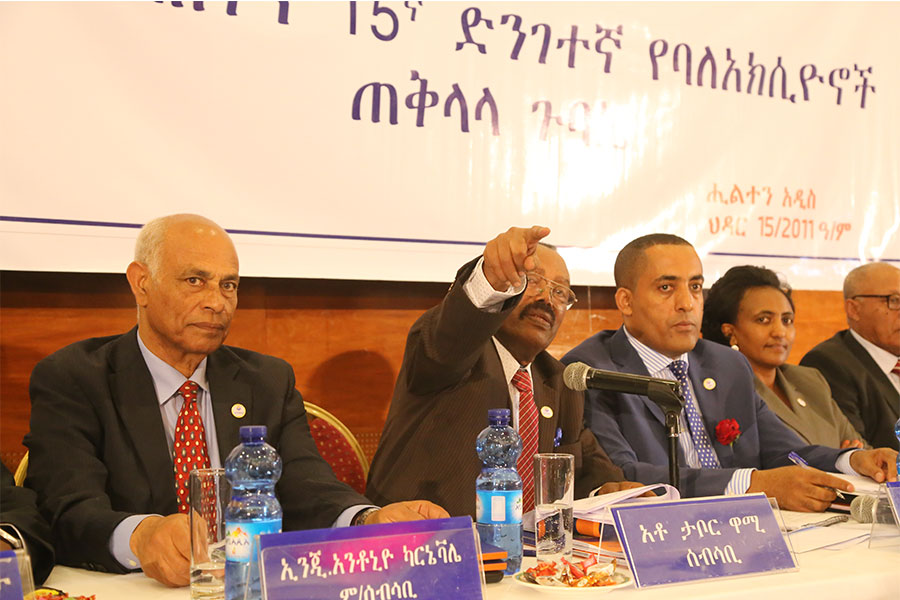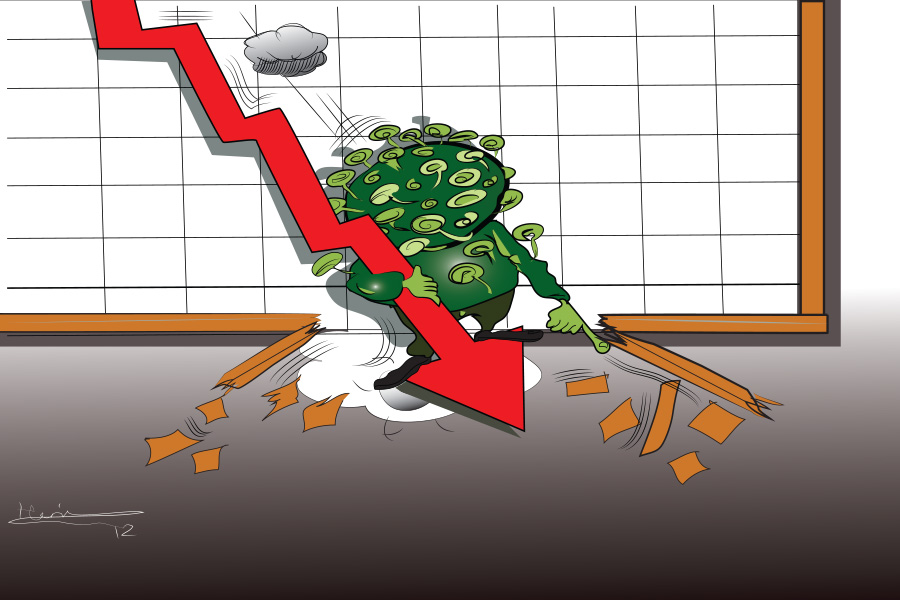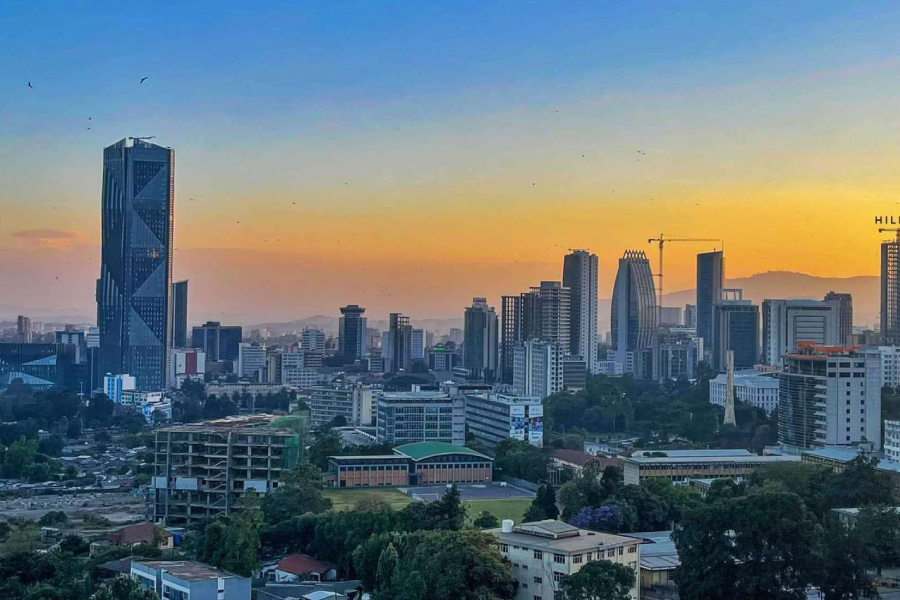
Advertorials | May 30,2025
Aug 26 , 2023
By Hintsa Andebrhan
The BRICS bloc – comprising Brazil, Russia, India, China, and South Africa – recently welcomed its latest member: Ethiopia. The addition has raised eyebrows, given its recent economic challenges compounded by civil strife.
Ethiopia's integration comes amidst claims by its leadership of burgeoning economic growth. Still, analysts suggest that Ethiopia's induction might reflect a broader geopolitical strategy by the bloc, particularly by dominant players like China and Russia.
Is this an economic decision grounded in Ethiopia's prospect for development, or a strategic move by BRICS to counter Western influence in Africa?
Prime Minister Abiy Ahmed (PhD) recently lauded Ethiopia's rapid economic development as a cornerstone for its BRICS entry. However, such claims seem to run counter to the realities on the ground. Despite its immense potential, Ethiopia has grappled with a civil war that has, by conservative estimates, inflicted billions of dollars in economic damage. With a population struggling with essential needs, they are not to take blame if this announcement leaves many to be sceptical.
More seasoned observers suggest Ethiopia's BRICS entry is less about its economic performance and more a geopolitical manoeuvre by powerhouse countries, primarily China and Russia. The strategic significance of the Horn of Africa, notably its proximity to the Red Sea and the Gulf of Aden, makes it a jewel for global powers.
China's deep pockets in Ethiopia are hard to ignore. With investments surpassing four billion dollars and accounting for over 60pc of foreign direct investments, Beijing wields substantial influence over Addis Abeba. The 13.7 billion dollar debt Ethiopia owes to China further complicates matters.
But beyond the financial metrics, China's forays into Ethiopia, particularly in manufacturing and services, suggest that Beijing sees Addis Abeba as more than just a debtor — it is a strategic partner.
Similarly, the Russian interest lies in the broader stability and influence of the region. A stable alliance between Ethiopia and its former foe, Eritrea, potentially creates a bulwark against Western interests.
Despite its recent challenges, Ethiopia’s large population and untapped natural resources present an attractive proposition for the BRICS bloc, primarily focused on an alternative economic vision to the West. Membership in the BRICS bloc requires alignment with its policy stances, a challenge the Ethiopian leadership must navigate adeptly.
Four of the BRICS founders have already shown a tendency to move away from a US-dollar-dominated system. While strategic in the broader game of economic chess, such a policy position presents challenges for Ethiopia. Plagued by a foreign currency shortage and still significantly integrated into the dollar system, any abrupt moves could unsettle its fragile economy.
For Prime Minister Abiy, this induction should not just be about international prestige — it should be about striking a careful balance between global alignments. While the BRICS nations offer an alternative to Western influences, their economic and strategic collective power is vast. China, India, and Russia possess economic and military capabilities that rival the West. While not always cohesive, their collective voice in global affairs signals a bloc that is hard to counteract.
As Ethiopia integrates more into this bloc, it will need to recalibrate its policies, ensuring they are in sync with BRICS while safeguarding its interests. This recalibration will mean rethinking trade, monetary policies, and even foreign policy priorities.
Ethiopia's BRICS entry heralds a new chapter in its international engagements. The move symbolises a country looking to break free from the traditional Western-dominated structures. Yet, such decisions come with their set of challenges and obligations.
The BRICS bloc, with its collective might, can be a formidable ally. Its members' focus on breaking the Dollar’s supremacy in global trade, if successful, could reshape the contours of international economics. But for Ethiopia, the challenges are immediate. Its economic fragility means it must approach BRICS-led initiatives with caution. Abrupt shifts could exacerbate its economic woes.
Prime Minister Abiy's leadership will be put to the test. His administration will need to prove its mettle, demonstrating that it can tread the fine line between aligning with BRICS while ensuring Ethiopia's national interests remain uncompromised.
Public sentiment oscillates between cautious optimism and scepticism. While respecting the government's autonomy in policy decisions, Ethiopians yearn for a leadership that places national interests above all. They envision an Ethiopia free from external impositions, from the West or the BRICS bloc.
As the dust settles on this announcement in the coming months, all eyes will be on Ethiopia. Its leadership's decisions will not only shape the country's future trajectory but could also signal the evolving dynamics in global geopolitics.
PUBLISHED ON
Aug 26,2023 [ VOL
24 , NO
1217]


Advertorials | May 30,2025

Viewpoints | Jan 16,2021

Fortune News | Jan 19,2019

Commentaries | Oct 23,2021

Radar | Dec 19,2020

Editorial | Sep 04,2021

Editorial | Mar 28,2020

Fortune News | Aug 04,2024

My Opinion | Oct 21,2023

Commentaries | Dec 30,2023

Photo Gallery | 180286 Views | May 06,2019

Photo Gallery | 170483 Views | Apr 26,2019

Photo Gallery | 161512 Views | Oct 06,2021

My Opinion | 137269 Views | Aug 14,2021

Dec 22 , 2024 . By TIZITA SHEWAFERAW
Charged with transforming colossal state-owned enterprises into modern and competitiv...

Aug 18 , 2024 . By AKSAH ITALO
Although predictable Yonas Zerihun's job in the ride-hailing service is not immune to...

Jul 28 , 2024 . By TIZITA SHEWAFERAW
Unhabitual, perhaps too many, Samuel Gebreyohannes, 38, used to occasionally enjoy a couple of beers at breakfast. However, he recently swit...

Jul 13 , 2024 . By AKSAH ITALO
Investors who rely on tractors, trucks, and field vehicles for commuting, transporting commodities, and f...

Nov 1 , 2025
The National Bank of Ethiopia (NBE) issued a statement two weeks ago that appeared to...

Oct 25 , 2025
The regulatory machinery is on overdrive. In only two years, no fewer than 35 new pro...

Oct 18 , 2025
The political establishment, notably the ruling party and its top brass, has become p...

Oct 11 , 2025
Ladislas Farago, a roving Associated Press (AP) correspondent, arrived in Ethiopia in...

Nov 2 , 2025
The National Bank of Ethiopia (NBE) has scrapped the credit-growth ceiling that had s...

Nov 2 , 2025 . By SURAFEL MULUGETA
The burgeoning data mining industry is struggling with mounting concerns following th...

Nov 2 , 2025 . By YITBAREK GETACHEW
Berhan Bank has chosen a different route in its pursuit of a new headquarters, opting for a transitional building instea...

Nov 2 , 2025 . By BEZAWIT HULUAGER
Nib International Bank S.C. has found itself at the epicentre of a severe governance...